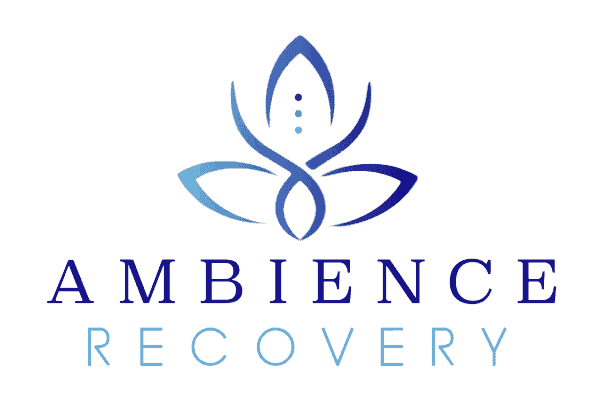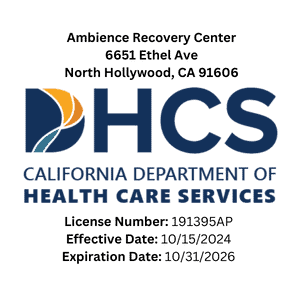Key Takeaways
-
The 12 steps of Alcoholics Anonymous (AA) guide people through recovery from alcohol and drug addiction.
-
These steps promote honesty, accountability, and personal growth.
-
The program is spiritual but not religious—you define your own higher power.
-
Millions of people have found healing and hope by working the steps with group support and a sponsor.
-
Ambience Recovery uses the 12-step model to support long-term recovery.
Introduction
When someone decides to stop drinking or using drugs, they might not know where to begin.
Recovery is a journey, and like any journey, it helps to have a map.
That’s where the 12 steps of Alcoholics Anonymous come in. These steps have helped people all over the world overcome addiction and rebuild their lives. They’re simple, powerful, and full of meaning—especially when followed with support from others.
In this guide, we’ll walk you through the 12 steps, explain what they mean, and show how they can be part of your own healing journey.
What Are the 12 Steps of AA?
The 12 steps were first introduced in the Big Book of Alcoholics Anonymous, published in 1939. Since then, they’ve been used by millions of people in recovery from alcohol and drug addiction.
These steps are based on spiritual ideas, but you don’t need to follow any one religion. The idea of a “higher power” is flexible. It could mean God, the universe, love, or just the support of your group.
The steps help you:
-
Take a look at your life
-
Make peace with the past
-
Connect with others
-
Learn how to live in recovery
-
Share your experience to help others
Let’s look at each step and what it means.
The 12 Steps of Alcoholics Anonymous
Step 1
We admitted we were powerless over alcohol—that our lives had become unmanageable.
This step is about honesty. You admit that addiction has taken control and that you need help.
Step 2
Came to believe that a Power greater than ourselves could restore us to sanity.
This is a step of hope. You start to believe that healing is possible.
Step 3
Made a decision to turn our will and our lives over to the care of God as we understood Him.
This is about trust. You choose to stop trying to control everything and instead open yourself to guidance.
Step 4
Made a searching and fearless moral inventory of ourselves.
Now you take a close look at your behaviors, actions, and emotions. It’s a step of self-reflection.
Step 5
Admitted to God, to ourselves, and to another human being the exact nature of our wrongs.
Here, you share your story with someone else—often your sponsor. It helps release guilt and shame.
Step 6
Were entirely ready to have God remove all these defects of character.
You become willing to change, even though it may feel scary or hard.
Step 7
Humbly asked Him to remove our shortcomings.
This step is about humility and growth. You ask for help to become a better version of yourself.
Step 8
Made a list of all persons we had harmed, and became willing to make amends to them all.
Here, you look at how your actions affected others. You become ready to make things right.
Step 9
Made direct amends to such people wherever possible, except when to do so would injure them or others.
This is about action and repair. You start to rebuild trust and heal broken relationships.
Step 10
Continued to take personal inventory and when we were wrong promptly admitted it.
This step keeps you honest in everyday life. It’s a way to stay balanced and self-aware.
Step 11
Sought through prayer and meditation to improve our conscious contact with God as we understood Him.
You spend time in quiet reflection, listening for wisdom and staying connected to your values.
Step 12
Having had a spiritual awakening as the result of these steps, we tried to carry this message to alcoholics, and to practice these principles in all our affairs.
Now, you give back by helping others in recovery and continuing to live by the steps.
Why Do the 12 Steps Work?
The 12 steps work because they’re more than just rules. They’re a way of life.
They help you:
-
Understand your addiction
-
Let go of guilt and shame
-
Build new habits and relationships
-
Stay connected to something greater than yourself
-
Support others and feel supported
Instead of going through recovery alone, you join a community of people who understand what you’re going through.
The Role of Sponsors and AA Meetings
One key part of the 12-step program is finding a sponsor—someone who has worked the steps and is willing to help you do the same.
Sponsors:
-
Offer encouragement
-
Help you stay on track
-
Listen without judgment
-
Guide you through the steps, one at a time
You also attend AA meetings, where people gather to share stories, struggles, and victories. These meetings remind you that you’re not alone—there’s a whole group cheering for you.
How the 12 Steps Fit Into Treatment at Ambience Recovery
At Ambience Recovery, we believe in a holistic approach to healing. That means we treat the whole person—mind, body, and spirit.
We often use the 12 steps as part of:
-
Family therapy
-
Aftercare planning
-
Peer support
You don’t have to follow the steps perfectly. You just have to be willing to try. We’ll walk with you at your pace and help you find the strength within yourself.
Conclusion: A Path to Healing and Hope
The 12 steps of Alcoholics Anonymous have helped millions of people recover from addiction and find peace in their lives.
Whether you believe in a higher power, or you’re still figuring it out, the steps offer a guide to living with purpose, honesty, and hope.
If you or someone you love is struggling with alcohol or drug addiction, you don’t have to do this alone.
Call Ambience Recovery today at 866-721-7470 to speak with a caring team member. We’re ready to help you and help you choose the best addiction treatment program that suits your needs the best.
FAQs About The Twelve Steps and AA For Addiction Recovery
What is the purpose of the twelve steps in Alcoholics Anonymous?
The purpose of the twelve steps is to provide a framework for recovery from alcoholism and to help individuals achieve abstinence from alcohol through a structured process of personal growth and accountability.
How can I follow the twelve steps effectively?
To follow the twelve steps effectively, it is recommended to work the steps sequentially, attend meetings regularly, and engage with an AA sponsor who can guide you through your recovery process.
What is the 12-step program in Alcoholics Anonymous?
The 12-step program is a set of guiding principles that outlines a process for recovering from alcohol addiction, emphasizing personal responsibility, spiritual growth, and community support through AA groups worldwide.
Can I work the steps on my own, or do I need to attend meetings?
While some people may choose to work the steps independently, attending meetings and participating in a fellowship is highly encouraged as it provides support, accountability, and shared experiences from others in recovery.
What should I expect when I attend an AA group meeting?
When you attend an AA group meeting, you can expect a welcoming environment where members share their experiences with alcoholism, discuss the twelve steps, and support one another in their recovery journey.
How do the steps of recovery build on each other?
The steps of recovery are designed to build on each other, meaning that each step lays the foundation for the next. This sequential approach is essential for meaningful personal growth and healing throughout the recovery process.
What is the role of a sponsor in the 12-step program?
An AA sponsor is a more experienced member who helps guide you through the twelve steps, offers support, shares their experience, and holds you accountable in your recovery journey.
Are the twelve steps applicable to other forms of substance abuse?
Yes, while the twelve steps were originally developed for alcohol addiction, they have been adapted for various substance abuse issues and are used in many recovery programs beyond Alcoholics Anonymous.
How do I know if I need to follow the twelve steps?
If you find that your alcohol use is causing problems in your life, such as affecting your relationships, work, or health, it may be beneficial to consider following the twelve steps as a structured approach to recovery from alcoholism.
Where can I find the AA literature on the twelve steps?
AA literature, including the book “Alcoholics Anonymous” and the “12 Steps and 12 Traditions,” can be found at local AA meetings, online through the Alcoholics Anonymous website, and various bookstores.
Resources
https://pmc.ncbi.nlm.nih.gov/articles/PMC2746426/
Katie is a Licensed Clinical Social Worker who has worked as a primary therapist, supervisor, and now clinical director for SUD/MH treatment centers for the past 12 years. Katie is trained in Brainspotting, EMDR, Internal Family Systems and Dialectical Behavior Therapy and is passionate about treating substance use disorders, trauma and grief.






